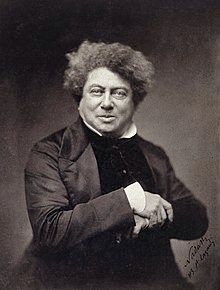In 1658, at the corner of the streets Git-le-Coeur and Le Hurepoix
by
July 21st, 2023
Audio Presented by

Many of my historical novels of high adventure were originally published as serials, including The Count of Monte Cristo
About Author
Many of my historical novels of high adventure were originally published as serials, including The Count of Monte Cristo
